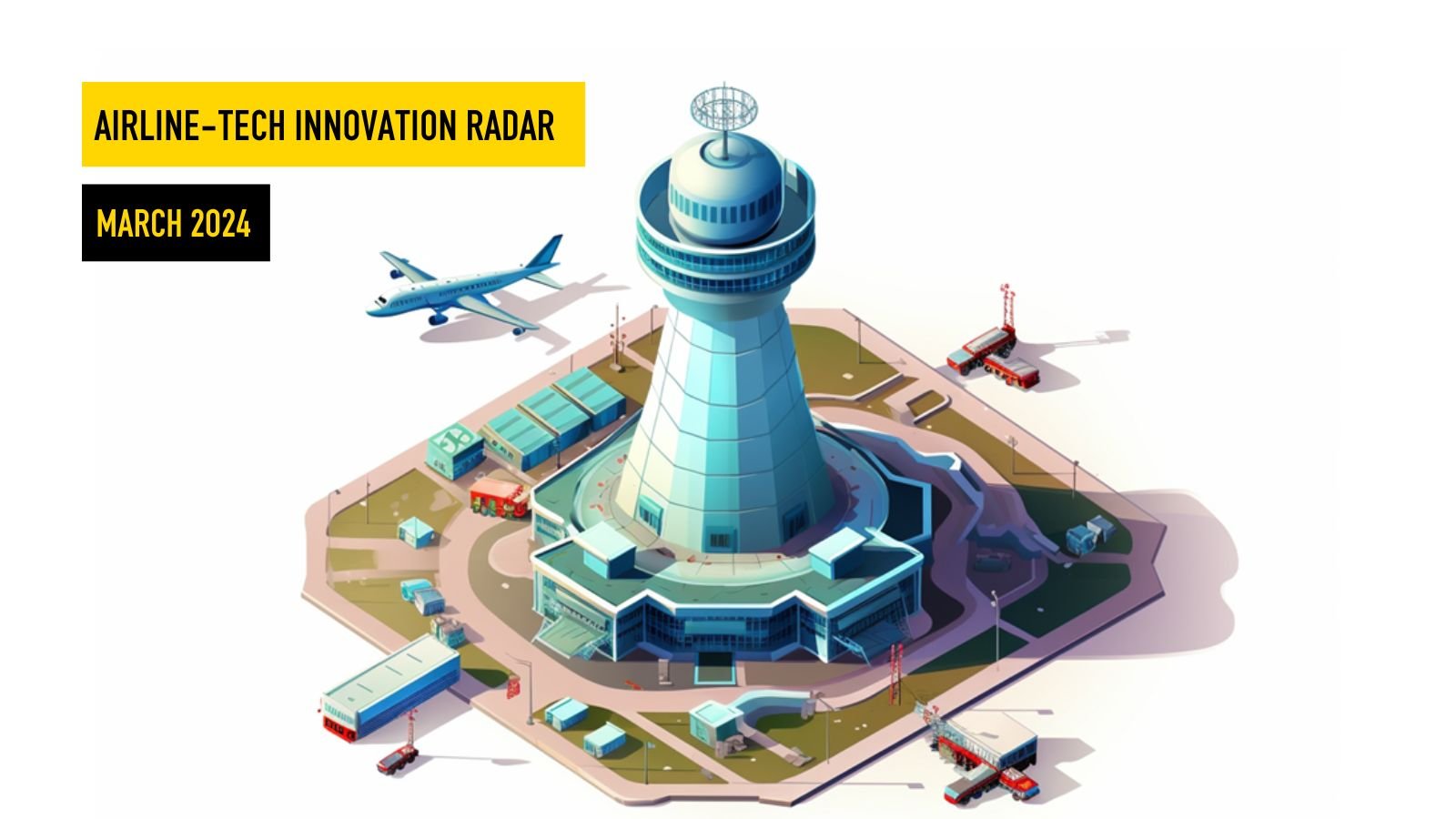Welcome back to our Airline-Tech Innovation Radar, highlighting the latest technological strides in the airline industry. Each month, we showcase a selection of the most recent product launches, pioneering pilot cases, and significant collaboration initiatives driving innovation in airline operations and retail.
Before diving into March's notable innovations, let's quickly recap the groundbreaking developments we explored in February:
- Boeing’s ForeFlight's "Voyager" app leverages the Apple Vision Pro and brings real-time, 3D airport operations to life, offering unparalleled insights and potential for optimizing airport procedures.
- In a leap towards solving the baggage dilemma, @Virgin Australia allows passengers to track their luggage in real-time throughout the entire traveler journey, enhancing transparency and customer satisfaction.
- AirAsia's new retail platform offers access to over 10,000 global events, seamlessly integrated with travel bookings on its Super App.
- Icelandair's ePOS System by Omnevo introduces an advanced in-flight sales system, improving operational efficiency and passenger experience with live inventory updates and personalized service.
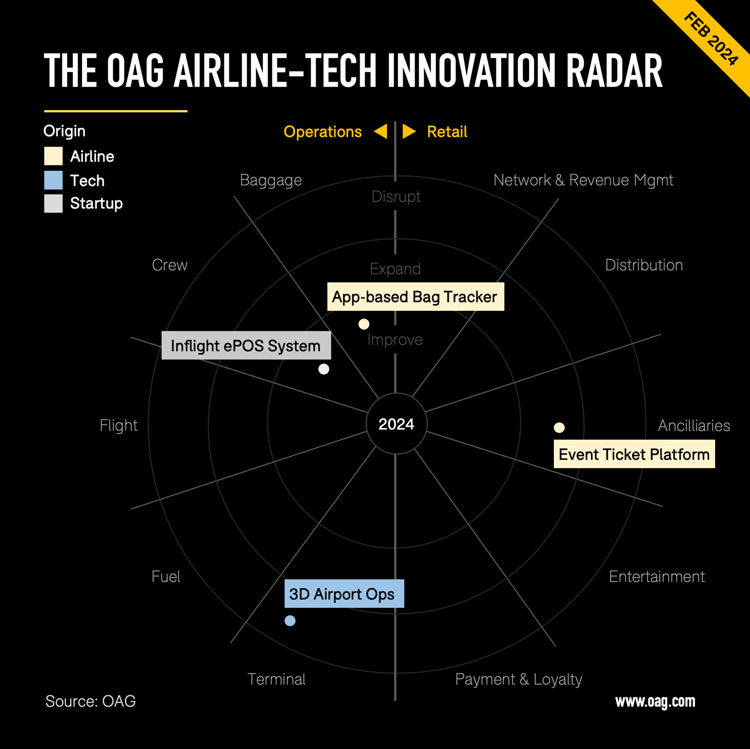
Now, let's turn our attention towards the key innovation launches in the wider airline context for March 2024.
Innovation #1: Kayak's AI-Powered Price Comparison Revolution
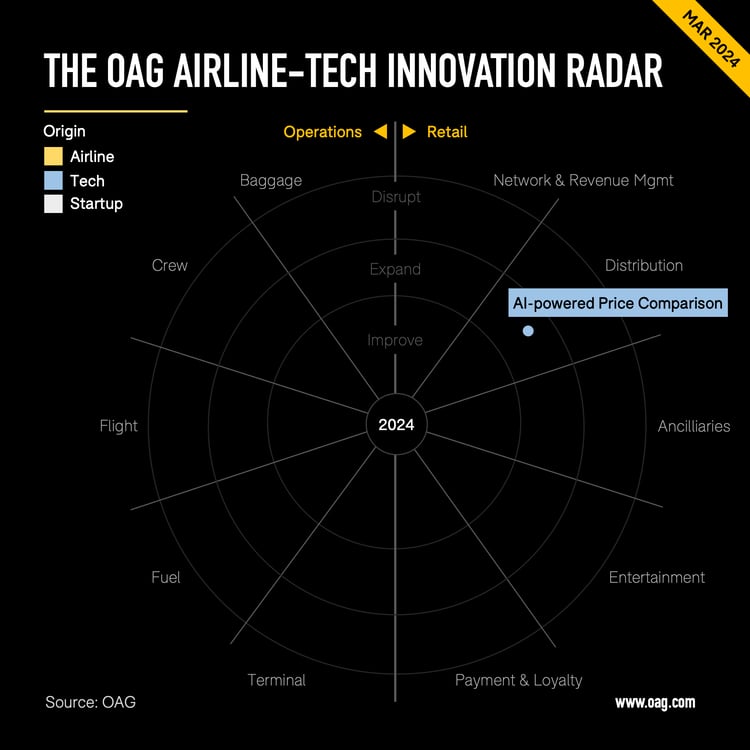
Kayak is trailblazing the integration of generative artificial intelligence in the travel sector, enhancing the flight booking experience with its innovative tool "Kayak PriceCheck." This feature, unveiled on March 5th, allows users to upload screenshots of flight itineraries from any travel website directly into Kayak’s app. The AI-driven technology then scours hundreds of sites to find a cheaper deal, bringing unparalleled convenience and efficiency to price comparison and arguably taking metasearch to the next level.
Nearly a year after launching its own ChatGPT plug-in, Kayak's deep dive into AI technologies continues to unfold with the introduction of this image recognition capability. This functionality is part of a suite of new AI-powered tools designed to transform how travelers search for and book flights, indicating a broader trend of AI integration in travel services.
This innovation tackles one of the critical pain points in the flight booking journey: pricing opacity. As we previously analyzed, complexity and a lack of price transparency are major hurdles to creating a seamless booking experience. Kayak's "PriceCheck" feature represents a significant step forward in addressing these challenges, providing a more transparent and user-friendly booking process that could set new industry standards. Notably, Skift tested the tool and found that it works well, further validating its potential impact on the travel booking landscape.
Innovation #2: Vueling's Data-Driven Flight Routing
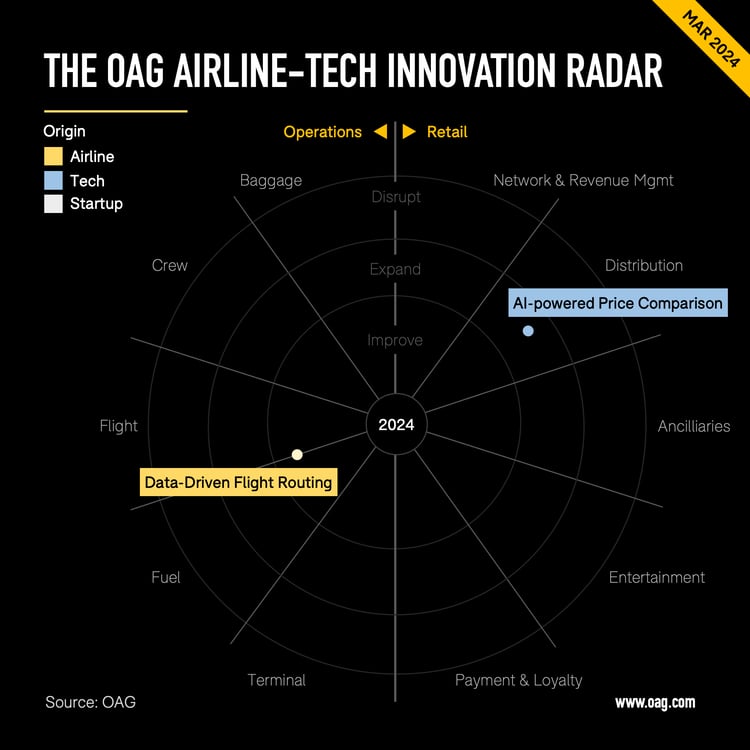
Vueling, the Spanish low-cost carrier, has harnessed the power of real-time data in its flight operations, utilizing advanced weather and wind forecasts through Nav Flight Services’ NAVlink. This implementation enables pilots to execute more fuel-efficient descent maneuvers, leading to "considerable" improvements in fuel savings and, consequently, a substantial reduction in carbon emissions.
Leveraging NAVlink technology alongside Honeywell's Pilot Fuel Efficiency App, Vueling is on course to cut its CO2 emissions by approximately 2,500 tonnes annually across its fleet.
This data-driven approach bolsters pilots’ situational awareness, providing them with timely, relevant data and best-practice indicators for optimized flight operations.
Why this innovation stands out:
- In light of increasing demands for environmental responsibility, Vueling's initiative marks a notable stride towards sustainable aviation, emphasizing the critical role of fuel and CO2 efficiency. Being part of the IAG family, Vueling's commitment to sustainability could inspire similar initiatives across the group, potentially magnifying the environmental benefits on a larger scale.
- This initiative is a testament to the essential role of data in contemporary airline operations. Equipping pilots with real-time, actionable insights places the transformative power of data directly in the cockpit. This approach is in harmony with the global shift towards data-centric operations, a domain where OAG excels by providing airlines with the necessary tools and data to navigate the complexities of modern flight operations effectively.
- While Vueling is not the only airline to utilize advanced weather technology (as we explored before), its emphasis on such innovations as a low-cost carrier is noteworthy. This initiative indicates that sustainable and data-driven operational strategies are becoming critical across the industry spectrum, including within budget airline segments.
In summary: Vueling's progress in integrating real-time data for flight routing underscores the potential for operational and ecological improvements within the airline industry. As well, it exemplifies how data-driven strategies can lead to tangible benefits in the pursuit of more sustainable and efficient airline operations.
Innovation #3: Munich Airport's Service Robot Pilot
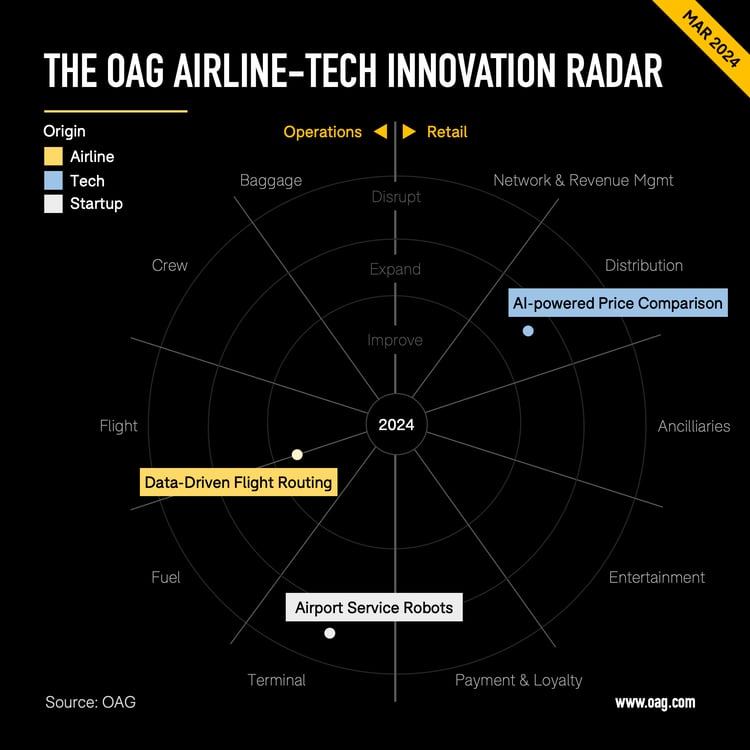
Munich Airport has launched a pioneering initiative by introducing JEEVES, a service robot, into its terminal environment. This marks a world-first as a “snackbot” in an airport setting.
Developed by Munich-based startup Robotise, JEEVES represents a notable leap forward in blending robotic technology with passenger service. This autonomous robot, originally designed for the hotel and healthcare sectors, has been adapted to serve passengers at Munich Airport, providing a range of snacks and chilled beverages. Operated through a user-friendly touchscreen and supporting various cashless payment methods, JEEVES navigates autonomously around Terminal 2, engaging with passengers through proximity sensors that prompt it to halt when approached.
While the direct retail impact of JEEVES might be limited, its deployment is a significant indicator of future trends in airport operations for two key reasons:
- The ongoing labor shortages in the aviation sector, particularly in operational roles, highlight the potential for robots like JEEVES to take on routine tasks, thereby reshaping the workforce dynamic in airport environments.
- The success of autonomous robots in service roles within many Chinese hotels, where they efficiently manage deliveries and other tasks, suggests a promising avenue for similar applications in airports. This could not only enhance passenger experiences but also improve operational efficiency in both customer-facing and backend processes, such as luggage handling.
Summing Up March's Innovations
This brings us to the end of March's edition of the Airline-Tech Innovation Radar. The aviation sector is continually teeming with fresh product unveilings and inventive partnerships. These three innovations captured our attention for their transformative impact on the passenger experience and operational efficiency.
READ NEXT:
- Unlocking Full Potential: Elevating the Flight Booking Experience
- Elevating the In-Flight Experience Through Innovation
- Redefining Loyalty: The Next Frontier in Traveler Relationships
- Travel Tech Report 2024: The Future of Innovative Airline Operations
- Innovative Airline Operations: The Turnaround



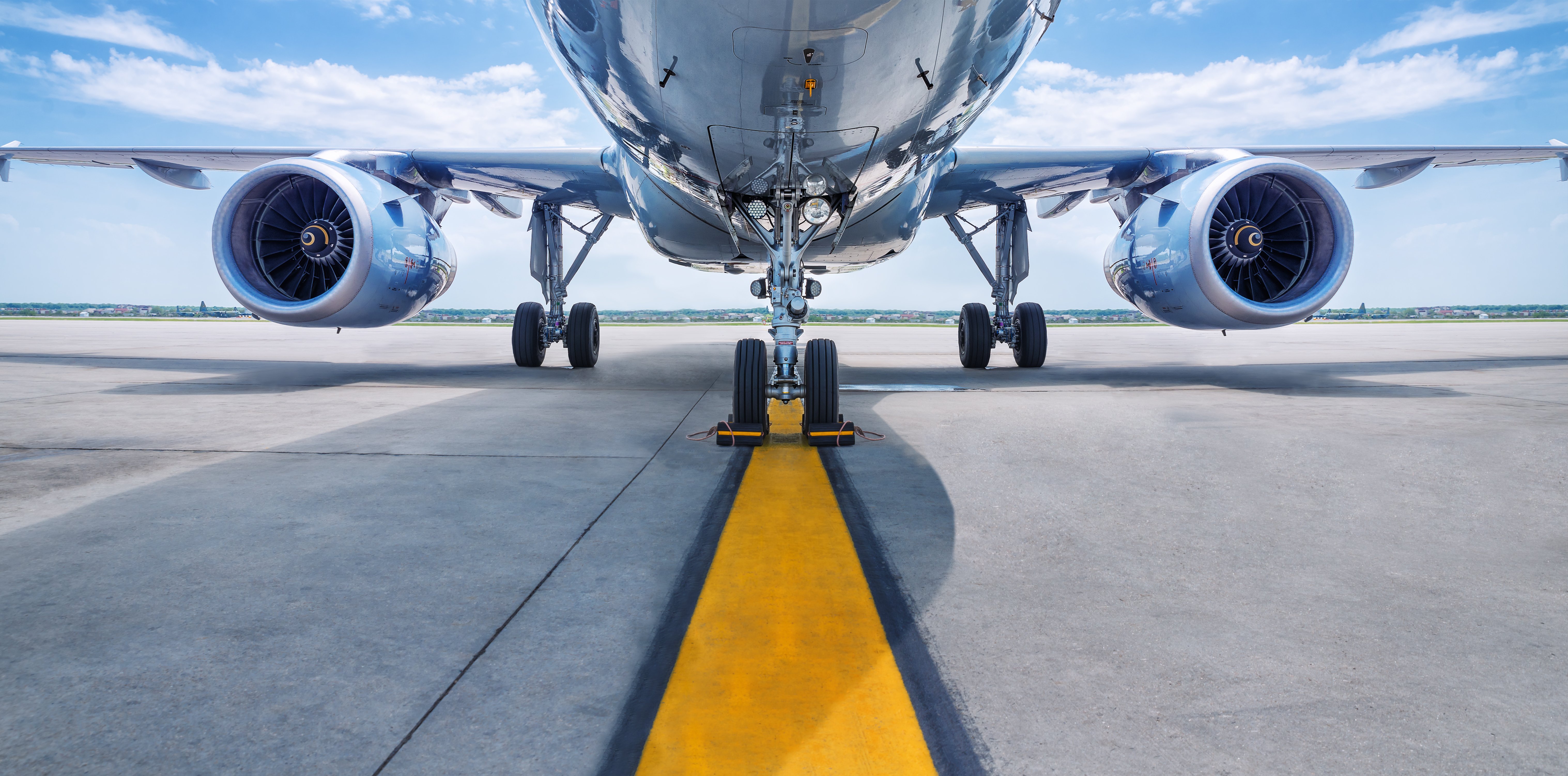

.jpg)

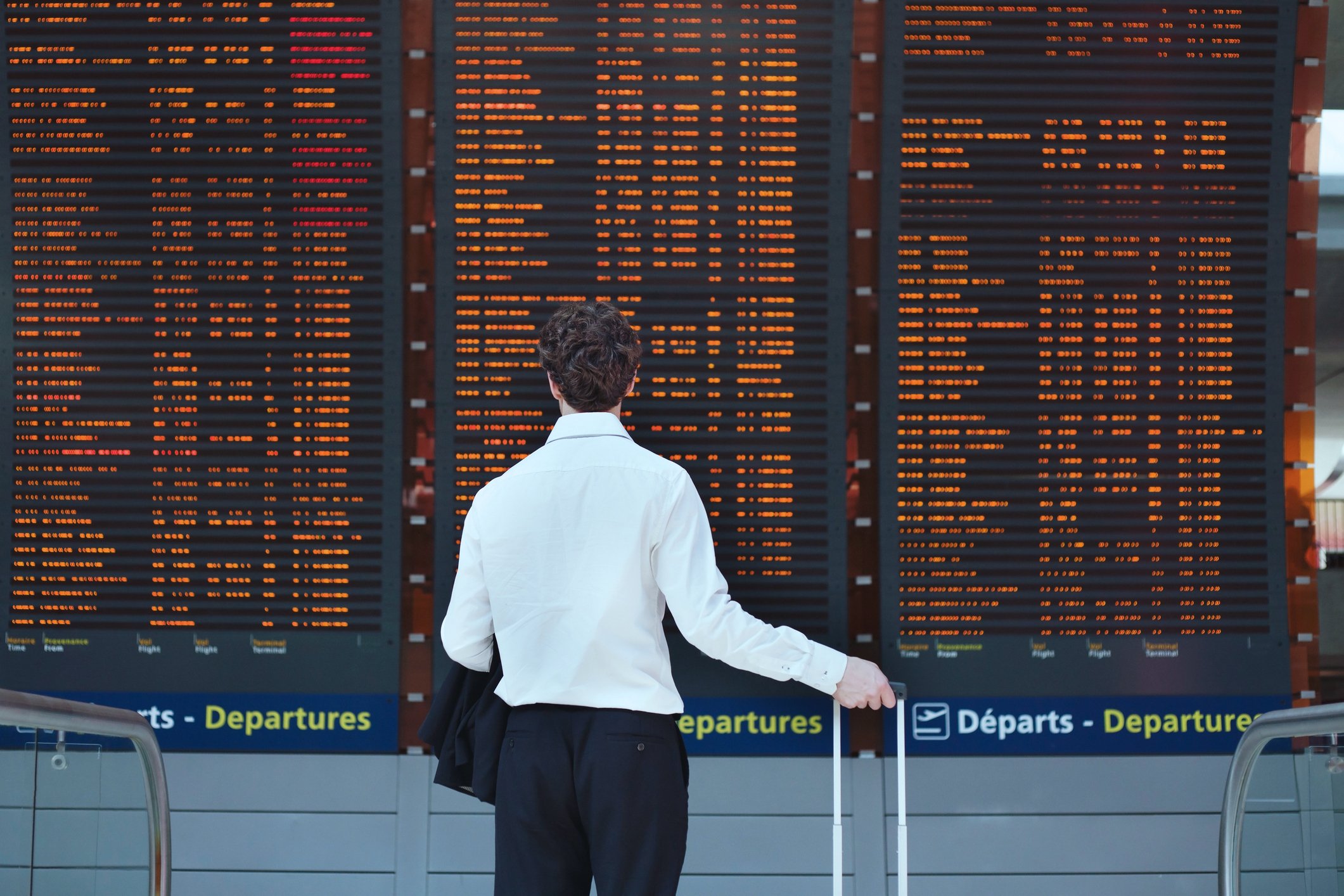

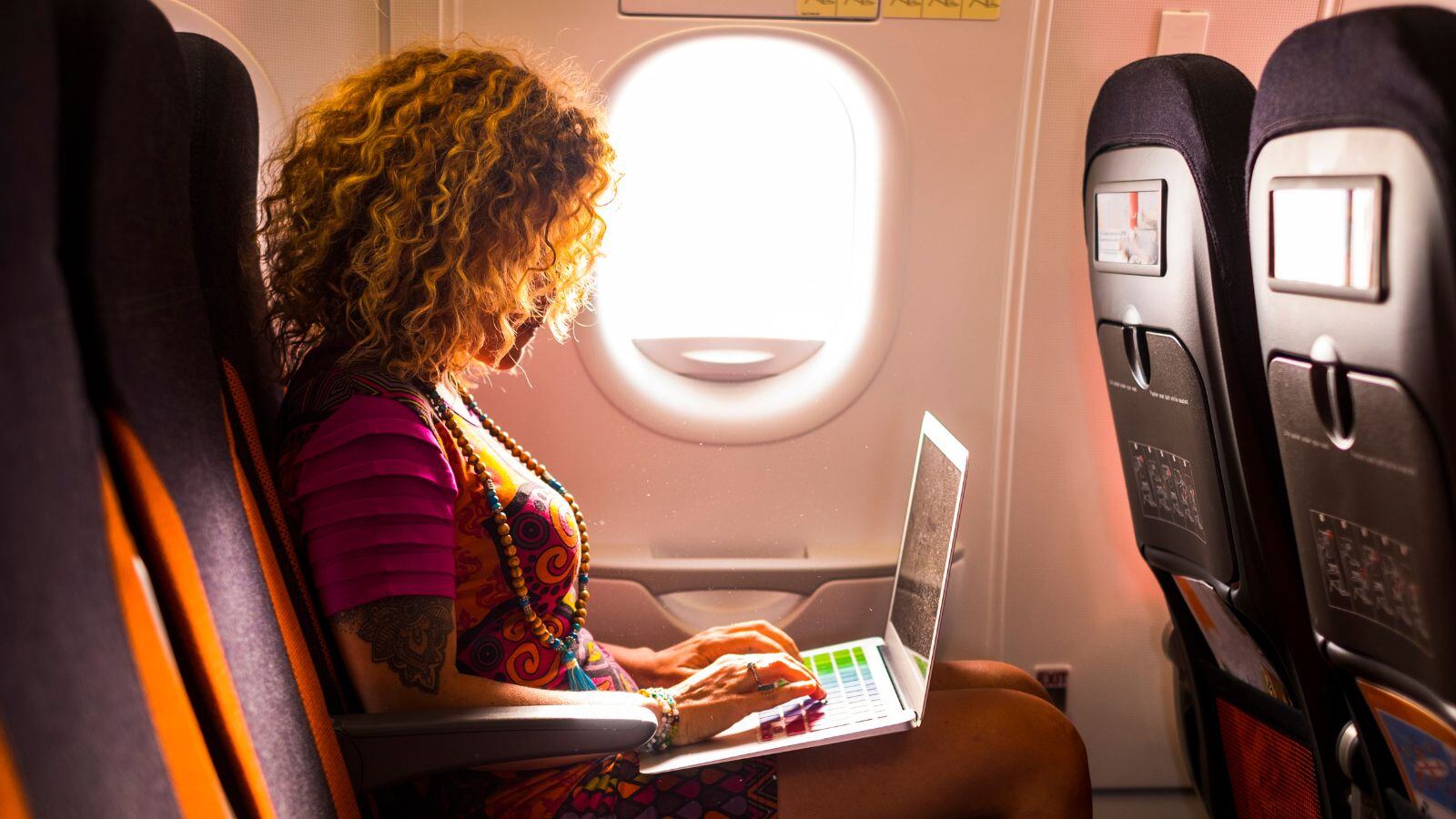
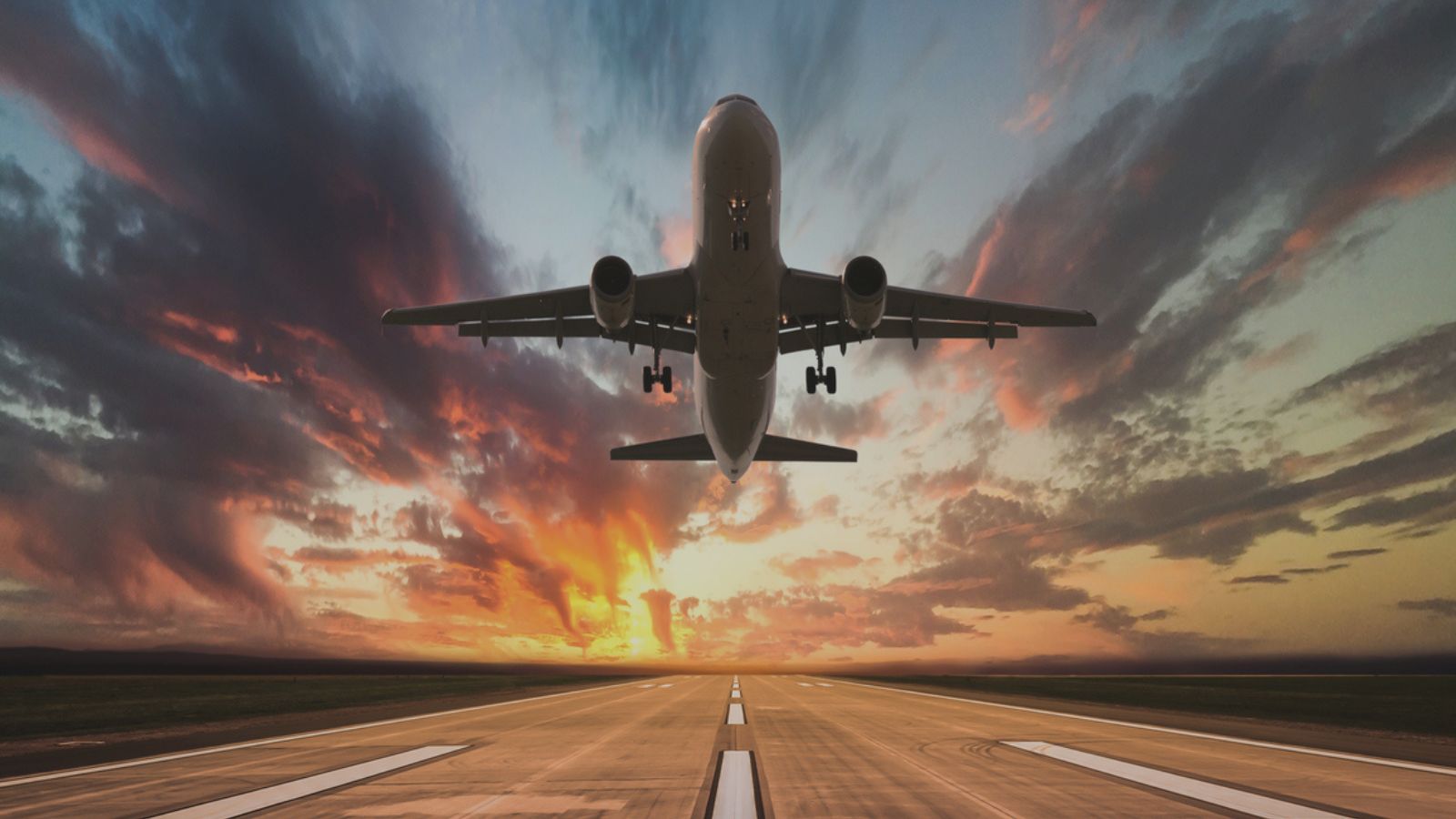
.png)







